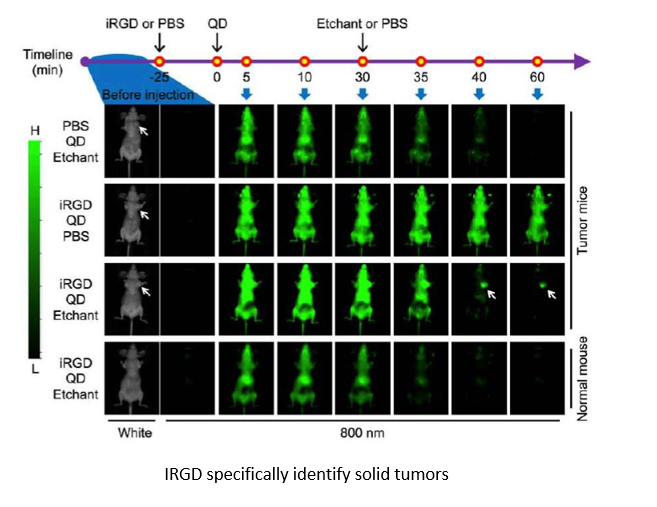Pancreatic cancers are mostly asymptomatic for a long time. When diagnosed, are often late stage (III, IV); medium survival time about 8.7 month even with the best available treatment.
A delivery system that selectively targets tumors and enhances the distribution of anti-cancer drugs throughout a tumor, while sparing normal tissue, is expected to improve the efficacy of anti-cancer therapies and, via increased specificity and sensitivity, to reduce side effects.
In this project, a San Diego team develops a tumor penetrating peptide technology, iRGD, that enables such delivery. iRGD can improve the efficacy of anti-tumor drugs and reduce toxicity and other side effects. It targets tumor angiogenesis with high specificity, and actively transport drugs through blood vessels into solid tumor (deeper than 3mm). With this feature, the technology can be applied to visualize solid tumors in PET/ CT or MRI scans and acts as a sensitive, tumor-specific early screening imaging tracer to catch the disease early. The expected global market size is 7.4 billion CNY.
Based on the encouraging Phase 1 clinical trial results, the San Diego team has entered a Collaboration and License Agreement with a leading Chinese pharmaceutical company. The San Diego team will be eligible to receive up to over $200 million US dollars in milestones as well as tiered double-digit royalties on product sales from the Chinese company. This technology has advanced into Phase 2 clinical trials in pancreatic cancer.
